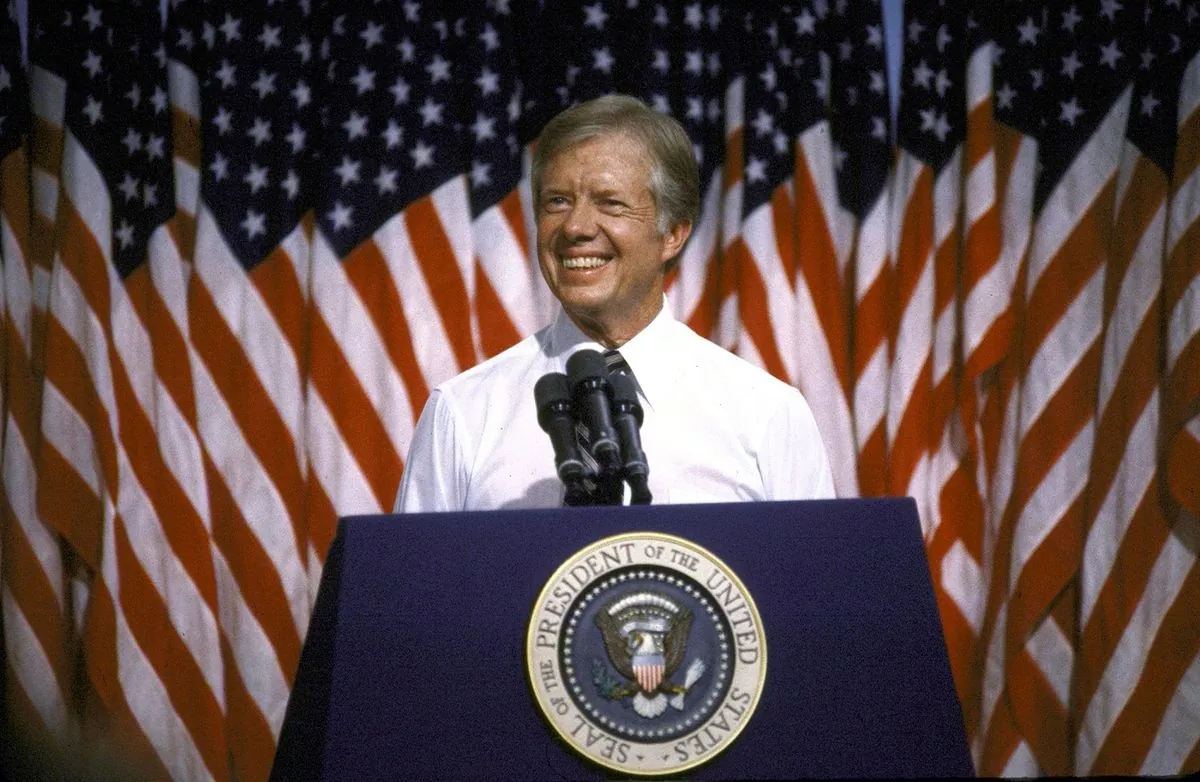As Jimmy Carter approaches his centennial on October 1, 2024, his remarkable journey from Plains, Georgia, to the global stage continues to captivate. Born in 1924, Carter's life has been defined by his outsider status, even as he ascended to the highest office in the United States.
Carter's political career began in Georgia, where he served as the state's 76th governor from 1971 to 1975. As a moderate on racial issues, he navigated the complex political landscape of the South during a time of significant change. His tenure as governor was marked by efforts to reform state government, often at the cost of political capital.
In 1976, Carter emerged as an unlikely presidential candidate, campaigning on a platform of honesty and competence in the wake of the Watergate scandal. His victory marked him as the first president born after World War I and the first from the Deep South since Reconstruction.
Carter's presidency, from 1977 to 1981, was characterized by significant achievements and challenges. He established the Department of Energy and the Department of Education, negotiated the Camp David Accords between Israel and Egypt in 1978, and installed solar panels on the White House roof in 1979. However, his administration struggled with economic issues and the Iran hostage crisis.
Throughout his time in Washington, Carter remained an outsider. As Jonathan Alter, his biographer, noted, "Jimmy Carter was always an outsider." This status was evident in his relationship with the Democratic Party establishment and his approach to governance.
"It was still an epithet: 'Another Jimmy Carter.'"
After leaving office in 1981, Carter found his most enduring success as a global humanitarian. In 1982, he and his wife Rosalynn founded The Carter Center, focusing on human rights and democracy promotion worldwide. This work earned him the Nobel Peace Prize in 2002 and the Presidential Medal of Freedom in 1999.
Carter's post-presidency has been the longest in American history, during which he has authored over 30 books, taught Sunday school classes well into his 90s, and been involved with Habitat for Humanity since 1984. His diplomatic efforts have included negotiating a nuclear agreement with North Korea in 1994 and making the first official state visit by a U.S. president to Sub-Saharan Africa.
As Jimmy Carter nears his 100th birthday, his legacy as an outsider who shaped American politics and global affairs continues to resonate. From his humble beginnings in Plains to his worldwide influence, Carter's journey exemplifies the impact one can have by staying true to one's principles, even when operating outside traditional power structures.
